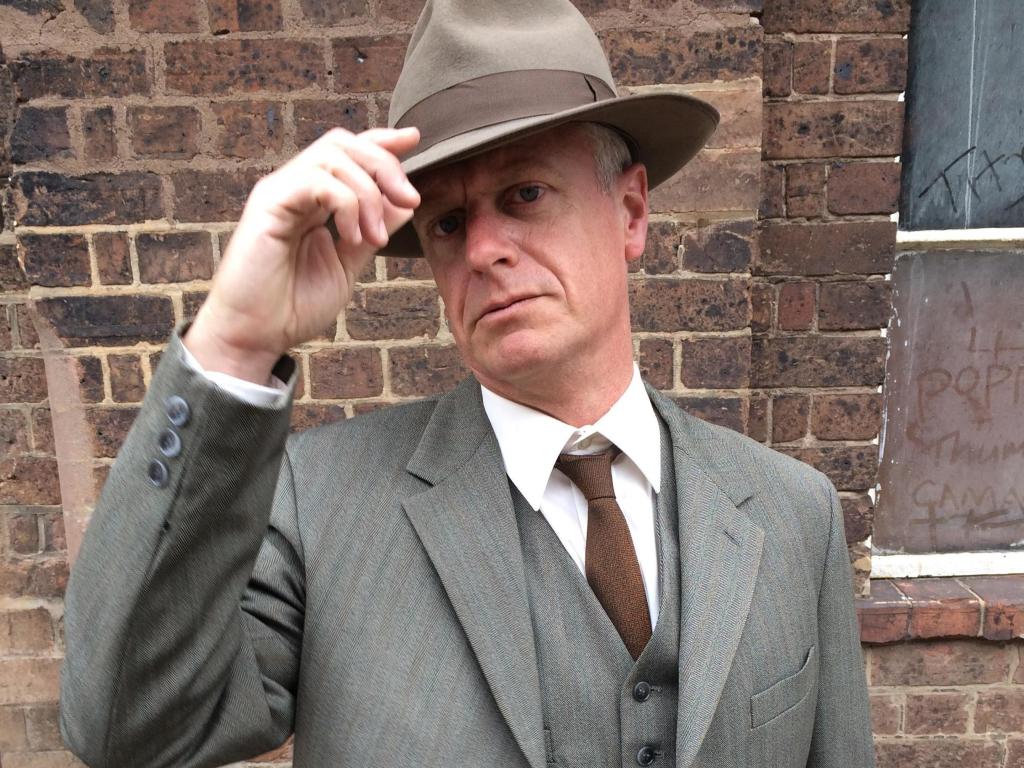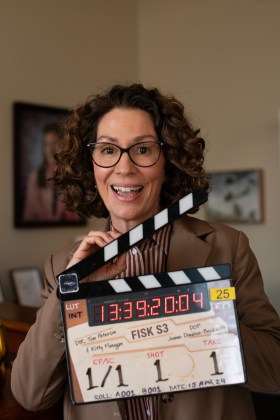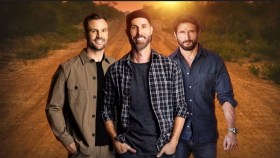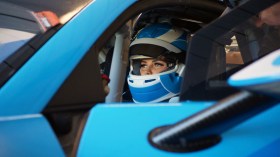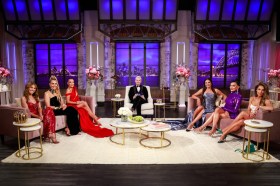Image: ‘Nondescript middle-aged guy.’ The author’s description of himself. Source: Richard Castles.
I knew the name Errol Flynn when I was a kid, even before I knew who he was. His name, like Davy Crockett, Moby-Dick and Pinocchio, was just part of the language. I wasn’t entirely sure if he was real or fictional. Later, I would read his autobiography. He was real, he was Tasmanian. Errol Flynn: dashing actor, adventurer, rake and raconteur. He knew how to live. ‘Oh, Errol’, to quote the Australian Crawl song, ‘I would give everything just to be like him.’
With this in mind, I registered with an extras agency.
Sure, I was bit past my prime – I’m the age now at which Errol died – but my mum had always said I was a bit of a charmer. My greying hair said Silver Fox, and I could work on the abs, like Daniel Craig, if it was called upon for the part. I only needed to get in front of the camera to get the ball rolling.
Eddie Izzard said that he used to creep around Ealing Studios as a kid, hoping to be discovered. ‘Who’s that creeping kid?’, a film producer would ask. ‘He’d be perfect for my new film, The Creeping Kid.’ Surely, when Judd Apatow’s new comedy, Nondescript Middle-Aged Guy got the go ahead, I’d be on the short list.
My agent was obviously on the same page, and astutely put me forward for my first role as “passer-by” in a neighbourly Australian soap. I was fairly confident I could pass by with the best of them.
They say if you get noticed as an extra, you haven’t done your job. It’s a delicate balancing act of being visible without being seen. No wonder they now call us background “artists”.
I’ve also heard it said that one of the hardest things to do when acting is simply to walk. Even as a mere passer-by, I suddenly became acutely self-conscious of moving my limbs. How do I walk? I have no idea. Do I swing my arms much? Where do I look? Am I loose or stiff? I became like that woman in Seinfeld who annoyed Elaine by not swinging her arms enough when she walked.
It seemed not to matter. A few of us criss-crossed back and forth in the background as the scene rolled, and although I felt a bit like a Thunderbird, my awkward walk went unnoticed. I had done my job. In the cut that finally went to air, I could spot my arm if I paused at just the right second.
In the next scene, the role required me to extend my range to “cafe patron”. I was partnered with another up-and-coming extra at a table somewhere behind the lead actor’s left shoulder, where we were directed to mime conversation as the main dialogue played in the foreground. Someone was worried about someone acting a bit strangely, like she had a secret, or something bad had happened. But she said maybe it was nothing. She was going to meet up with her later at Lassiter’s. “Ok, bye.”
At first, I tried to be creative with my imaginary dialogue, but soon found out that, yes, mouthing “rhubarb, rhubarb” works just as effectively. As I write this in my local café, I note that no one behaves in cafés like they do on TV. Principally, most people are on their own, quietly hunched over a newspaper, mostly still, and completely oblivious to the idea anyone might be watching them. No one is talking as much with their hands or pointing as enthusiastically at their coffee as they do at Harold’s Place. Maybe it’s just the neighbourhood.
I began to ease into my role. Yes, you had to move a bit and do stuff, like reach for the sugar or take a sip of your coffee, to create some atmos, but mostly it didn’t matter much, as long as you didn’t start break dancing or throwing stuff. After a while, I genuinely almost forgot the cameras were rolling and just sat there opening and closing my mouth like a goldfish.
The trouble started later at Lassiter’s when I was given the direction to stand up from my chair during a scene and walk (again!) across the bar as if I were going to the toilet – the shortest pee in history, as I had to stop and wait six beats before turning around and walking back. The floor of this set was wooden and I had made the mistake of wearing wooden-soled shoes. On my cue, as the lead actors continued talking about the friend they were worried about, as if she had a secret or something bad had happened, but maybe it was nothing, I stood up and walked to the loo.
Clop! Clop! Clop! Why were my shoes so loud? It was ridiculous. Was the floor designed to amplify sound? I waited my six beats and turned around. Clop! Clop! Clop!
“OK! We’re picking up some background noise”, the director said. The assistant director responsible for background artists came over and asked if I could walk more softly. “Sure”, I said. I wanted to be one of those no-fuss, agreeable actors, and resisted the Christian Bale tantrum.
I went again but, for the life of me, every time I planted my foot it sounded like I was hitting a musical wood block. Clop! Clop! Clop!
The assistant director came over again. I asked if maybe there were some rubber strips they could quickly tape to my soles. Who did I think I was, Mark Wahlberg? Just place your feet down gently, I was instructed. “Sure.” Time was of the essence here.
We went again. It was like trying to eat Kettle Chips quietly in a cinema. I could hear every step I made. Clop! Clop! Worst of all, in trying to plant my feet down softly, I was now walking as if I was stalking my way to the toilet. I was in great danger of being noticed. A guy in the background creeping to the toilet could raise all sorts of questions about an imminent plot development, and possibly distract from the main narrative of the friend being worried about the other friend acting strangely, as if she had a secret or something bad had happened, but maybe it was nothing.
In my final take I committed the egregious sin of the professional background artist of actually, unintentionally making the “I’m trying to walk quietly” facial expression and giggling a bit.
I haven’t been asked back to that particular set since then. But no matter. My career has since blossomed and I have gone unnoticed in some of the biggest and best TV shows and movies in Australia. You didn’t see me in The Dressmaker or Holding the Man. You missed me in Jack Irish and Picnic at Hanging Rock. You won’t catch me in Bloom or Miss Fisher’s Modern Murder Mysteries. I’m in quite some demand as nondescript, middle-aged guy.
I’ve even played the ultimate extra – a dead guy, like Kevin Costner did in The Big Chill. And he went on to play Robin Hood. Just like Errol Flynn.
10 Things to Know About Being an Extra
1. The Money: If you want to earn good money, extra-ing is probably not for you. It’s minimal wage stuff and impossible to make a full-time job of it. You can spend a long day on set and then – after tax, super and agent fees – get a payslip that resembles loose change. Like most casual jobs, the money can jump to something better if you go into overtime, which can happen quite often on a movie set. The free catering is a nice little bonus, so make the most of it. And occasionally you might get a free haircut if it’s needed for the part. I don’t think Tom Cruise and Meryl Streep think in these terms. Corporate video gigs and advertisements usually pay more. They’re good to get, especially if your face is featured. Go for everything if you can. Be a yes person. But, personally, I wouldn’t get my head shaved for less than two grand.
2. The Food: Film producers obviously know that a well-fed crew is a happy crew. Movie production is big business, like building a skyscraper, with a lot of hands needing to work closely together for long hours. This is where the food plays its vital role, and “what’s for lunch?” is often a focal point of conversation. As an extra you go last! It’s possible you’ll miss out, but in most cases in my experience there’s plenty for everyone. Sometimes it might be Mexican day or Indian day. Turning up to work and getting a full breakfast before you start can bring a smile to the face of the most grizzled old background hack. Extras sit at their own table away from the crew and the stars. Sometimes extra snacks will be brought onto the set during a long day.
3. The Book: Here, I mean the one you should bring to read while sitting around long, long hours when you are not required on set. Days can drag, so factored into my mental balance sheet is the thought that I am sometimes being paid to get some reading done. Recommendations: War & Peace, Moby-Dick, Infinite Jest.
4. The Work: Most of the time, you will be doing mind-numbingly simple things, like standing in a crowd (this will often involve a collective gasp at something that has happened or a lot of murmuring), sitting at a café table, walking down a street, pointing at things. The bottom line: you are a moveable prop, being paid slightly more than the pot plant in the corner, but slightly less than the vintage car on the street. Sometimes, you may get asked to do something more exciting. I’ve danced in a nightclub, been in an action scene where I fell over a chair, and occasionally had to actually almost “act” with one of the stars, as in react and exchange facial expressions. If you’re lucky you will get an actual, named regular character – like a detective at the station – so even though you don’t speak you get repeat work for continuity. If you’re really lucky, you might get thrown a line if the script suddenly demands it, but don’t bank on it. If you’re really, really lucky a talent agent spots you and you become a star. Winning lotto is more likely, so if that’s your dream, go to acting school and work hard.
The assistant director will tell you what to do and when. Then, when the director says “action”, you do it. They will tell you if something is wrong, so don’t go around telling them you were unhappy with a particular take. There’ll usually be a few takes, some fiddling with the cameras and lighting, some more takes, then a reset for the same scene from a different angle. Then a reset of the whole thing for reasons privy only to the central creative team. There can be a lot of time just standing on your feet waiting, waiting, waiting. Keep your fluids up! Luckily for me, I quite enjoy watching how the actors do their work, and also the behind the camera stuff. These people are hard at work too, so don’t bother them. They generally see you as a prop too. But there are enough laughs and things going on to usually keep me awake.
5. The Clothes: Often you will be given a brief and asked to bring your own wardrobe – work suit, summer party dress, etc. But for period dramas, you’ll get to play dress-ups, which is fun for the easily-amused, like me. Firstly, you get to feel a bit special by sitting in hair and makeup and being treated almost like you matter and are not easily replaceable. I’ve had 19thcentury beards attached and worn flashy 1960s suits. But mostly I’ve just been a policeman – it’s amazing how often Mr Plod is required in TV shows and movies. Be mindful of the weather. You will often spend long hours in ridiculous heat or freezing cold. I once had to stand around in a paddock somewhere past Werribee long into the winter night really regretting not wearing my thermals and thicker socks.
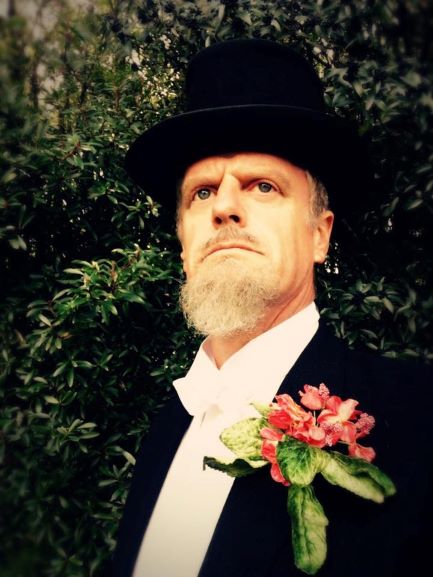
Image: Playing dress-ups. The author in costume. Supplied.
6. The Rules: No phones on set. No photos. No spilling food on your costume. No talking to the stars. No looking at the stars. No breathing the same air as the stars. In reality, most of the minor players are pretty cool if you just act like a normal person, but don’t talk to them unless they talk to you. Less so the real A-listers, who you are less likely to even see, and who keep to themselves when not practising their craft. It’s not like the Ricky Gervais show where you rock up and have a chat to Samuel L Jackson – don’t expect them to even notice you. Don’t cause trouble, don’t make a name for yourself. No matter how legitimate your complaint, you don’t matter, no one cares, and you will probably just get a red mark against your name. Be agreeable, but not overly chatty. And if you need to go to the loo, try to hold on until an identifiable break. You won’t win fans holding up a set running at a gazillion dollars a minute because an extra was in the portaloo. You are allowed to use your phone in that room or in the extras green room – which is often a row of foldup chairs in a back corridor. Are you getting the picture?
7. The Screen: I’ve hardly ever watched anything I’ve been on. I actually don’t watch a lot of TV, and it’s a lot of effort to follow which episode of such-and-such you might pop up in. Occasionally, I’ll get a text message from a friend saying, “Did I just see you in The Wrong Girl?” Oh, possibly. Did I do The Wrong Girl, I think, scanning my mind back a few months. When I have seen myself, I’m usually disappointed at how little of me can be seen or how much. Ech! Is that what I look like? But you will start watching the extras more than the leads in the shows you watch. The only people who watch extras are other extras.
8. The Agency: Search around and call them up. They want all sorts of different looking people, so you don’t have to be a supermodel. In fact, a unique face can get you a lot of work if you’re prepared to be stereotyped. Yes, if you have a thick brow and lots of scars, you’re probably more likely to get picked for the bad guy roles. It’s amazing how often Mr Plod chases bad guys. Be realistic: are you a young soldier, a sharp-looking businesswoman, a superannuated retiree or a member of the Asian Triads? Get over yourself, and you can get work. Usually, you will go in and they’ll have a look at you. If they want you, you’ll probably have to pay for registration and photos up front, maybe $300 to $400. They might be happy to come to an arrangement, but I managed to pay off my photos after a couple of jobs. If you have the money you can find your own photographer to do some more professional shots for you. It’s also worth paying the annual fee to join Equity.
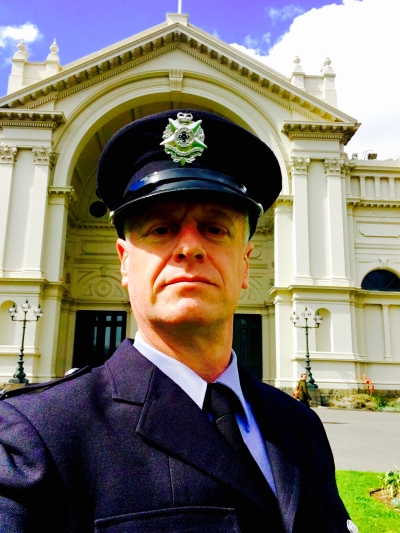
Image: It’s surprising how often Mr Plod is required. The author is often called upon to wear a uniform. Supplied.
9. The Variety: The reality is that most of the time extras are required for similar reasons: crowds, cafes, pedestrians, and so on. If you have a low boredom threshold you will probably go nuts. But at least the reason for you being there is often varied. Like the movies themselves, you can be working in the ‘60s one day and the future the next. I have been a special agent in a government meeting discussing alien invasion. I have been a gay man in the ‘80s. I have been an old man in Victorian England. I have been in dream sequences and terrorist situations. On the whole, I can think of worse ways to make a little side money, but don’t let the glamour you see on screen fool you into what is behind it. It can take a long day to make one minute of cinema magic, and for an extra, most of that time is spent twiddling your fingers.
10. There is no number 10: This is just here to pad out the numbers, fill up the screen, round out the numbers. That’s you. If your ego will struggle doing that, extra-ing is probably not your thing. Be a waiter, where you will be noticed and treated with respect at all times.
